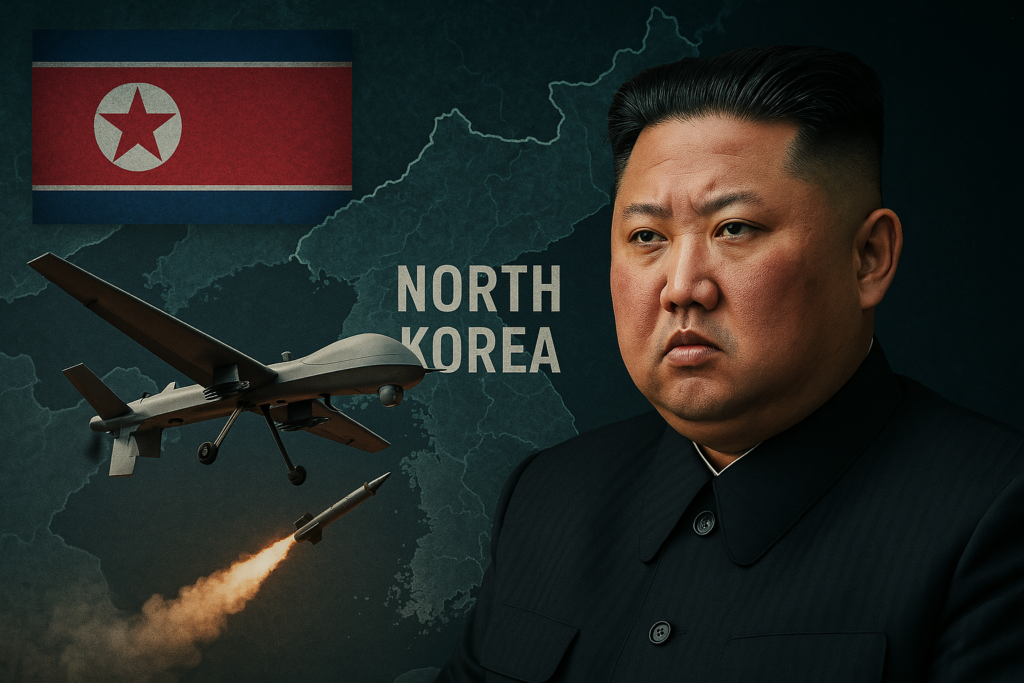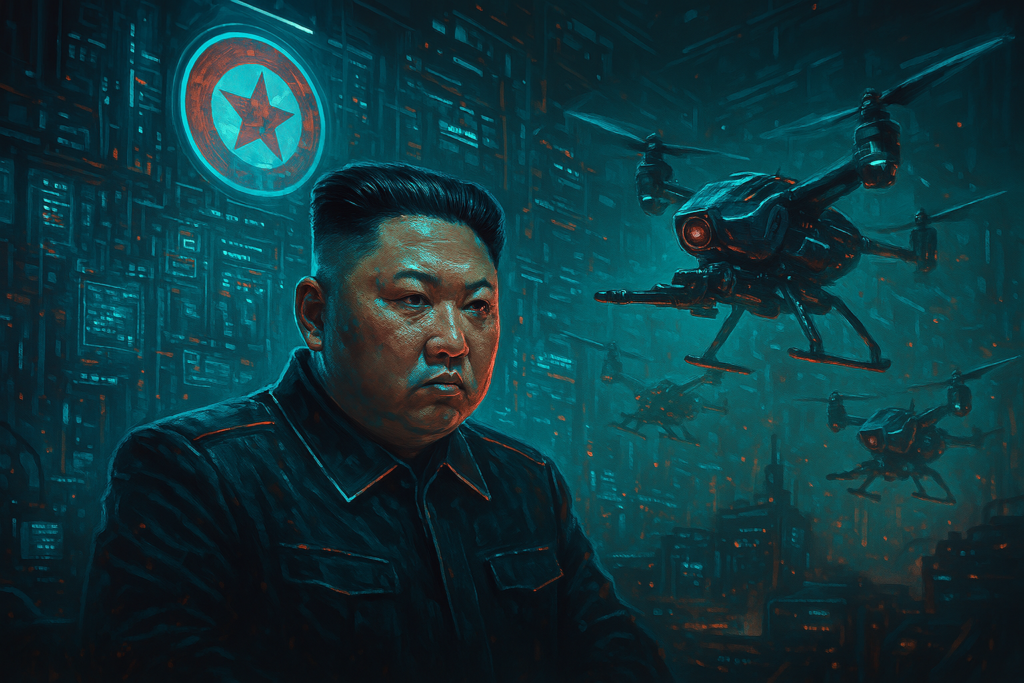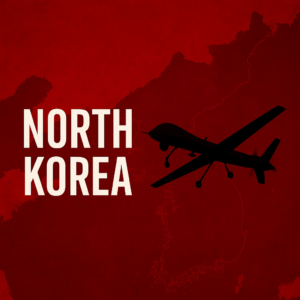The Ethical Dilemmas of North Korea AI Weapons Development
North Korea’s recent test of AI-powered suicide drones marks a troubling milestone in the global arms race for autonomous weapons systems. Under the watchful eye of dictator Kim Jong Un, these unmanned aerial vehicles demonstrated the ability to identify, track, and eliminate targets with minimal human intervention—a development that has sent shockwaves through international security circles.
This advancement represents more than just another incremental step in weapons technology. It signals the dawn of an era where artificial intelligence increasingly makes life-or-death decisions on the battlefield. As nations worldwide accelerate their development of autonomous weapons systems, we face urgent questions about North Korea AI weapons—specifically, the limits of delegating lethal force to machines.
While maintaining technological superiority is essential for national defense, we must consider whether removing human agency from battlefield decisions serves our long-term interests—or undermines the values we claim to defend.
Understanding North Korea AI Weapons Development
Artificial intelligence weapons systems differ fundamentally from conventional armaments in their capacity for autonomous decision-making. While traditional weapons require human operators to select targets and initiate attacks, AI-enabled systems can independently identify potential threats, prioritize targets, and execute strikes based on pre-programmed parameters.
North Korea’s recent demonstration, reported by multiple news outlets including Fox News and Al Jazeera, showcased drones capable of identifying targets and conducting kamikaze-style attacks without real-time human direction. Kim Jong Un reportedly called for increased production of these weapons, describing them as essential to modernizing North Korea’s military capabilities.
This development doesn’t exist in isolation. Major military powers including the United States, China, Russia, and Israel have invested heavily in autonomous weapons research. Systems ranging from semi-autonomous sentry guns to fully autonomous drone swarms are in various stages of development and deployment worldwide.
The international community has recognized the unique challenges posed by these weapons. The United Nations has held formal discussions on autonomous weapons systems since 2014 through the Convention on Certain Conventional Weapons (CCW). A new resolution passed in late 2024 expressed concern about the “possible negative implications” of autonomous weapons and created a new forum for addressing these challenges.
Multiple Perspectives on North Korea AI Weapons
The debate surrounding AI weapons includes several viewpoints:
- National security advocates emphasize tactical advantages. AI systems can reduce military casualties, make faster decisions, and function in hostile environments where human soldiers can’t.
- Ethics experts warn of moral hazards. The Future of Life Institute argues that replacing human judgment with algorithms violates core values of dignity and accountability.
- Global stability analysts highlight the risk of escalation. Without enforceable international standards, an AI arms race could spiral out of control.
- Traditionalists note that just war theory requires human reasoning. Removing people from the loop may erode moral responsibility in warfare.

Current Capabilities and Limitations of North Korea AI Weapons
Despite rapid progress, AI military technology is still constrained. Today’s systems struggle with contextual awareness and the ability to differentiate civilians from combatants. Ethical judgment remains a human strength.
Examples like Israel’s Harpy drone and the U.S. Navy’s Phalanx system operate under strict human-defined parameters. North Korea’s demonstration suggests a move toward full autonomy, but true “fire-and-forget” AI weapons are not yet mainstream.
Autonomous capabilities are often embedded in software—making them difficult to verify through conventional arms inspection protocols. The tech gap is closing fast, but the ethical and regulatory gaps are growing wider.
Ethical Standards for North Korea AI Weapons
To responsibly advance AI military technology, we need clear standards:
- Human oversight must be maintained. No AI system should operate with total independence when making kill decisions.
- Technology should reflect values. Defensive systems may be justified, but offensive tools without human input deserve deeper scrutiny.
- International norms matter. The U.S. should lead from strength—working to create global rules that constrain adversaries as well.
- Test before deployment. Unproven AI tech must undergo rigorous evaluation in realistic scenarios to minimize unintended harm.
Conclusion: Defending With Dignity
North Korea’s unveiling of AI-powered drones underscores a growing reality: autonomous military systems are no longer theoretical. As this technology evolves, so must our response.
We need a framework that secures our nation without sacrificing our principles. That means maintaining human control, demanding ethical accountability, and shaping international norms before others do it for us.
This is the defining edge of North Korea AI weapons—not just how powerful our tools are, but how responsibly we choose to use them.

Sources
- Al Jazeera. (2025, March 27). North Korea’s Kim Jong Un oversees tests of new AI-equipped suicide drones.
- UNRIC. (2025, January 6). UN addresses AI and the dangers of lethal autonomous weapons systems.
- SIPRI. (2025, February 6). Dilemmas in the policy debate on autonomous weapon systems.
- Future of Life Institute. (2021, November 27). 10 Reasons Why Autonomous Weapons Must be Stopped.
Recommended Reads
- Army of None by Paul Scharre: A comprehensive look at autonomous weapons and the future of war.
- Just War and the Ethics of Espionage by Darrell Cole: An examination of ethical frameworks in military technology.
- Visit SmartMachineDigest.com: Explore AI news, analysis, and commentary.

